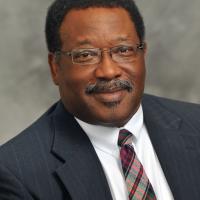Commentary on John 1:19-34
We often refer to John the Baptizer as a voice crying in the wilderness.
John’s message of the need for repentance and righteousness as well as his rather unorthodox appearance brought to mind the prophets of old in Israel’s history (see 1 Kings 1:8; Isaiah 40:3; Zechariah 13:4; Malachi 3:1 and 4:5). John stood out from the crowd. People wondered if he was sent to prepare people for the Messiah or if he might be the Messiah himself or if he might be another messianic pretender. And so they asked, “Who are you?” (John 1:19)
This question belies the quest for a savior or deliverer which recurs throughout human history. Joseph Campbell calls it the quest for “the hero.” Campbell studied religious stories around the world and found a recurring pattern in human society, the hero. The hero was born and raised in obscurity. Normally, the heroine/hero is unaware of her/his destiny until a crisis arises which requires the skills peculiar to her/him. The hero/heroine faces insurmountable odds, comes close to failure, but finally overcomes and restores order and justice to society. I agree with Campbell in general, but I prefer the expression “the secret savior” to “the hero.” Secret savior conveys the sense of communal surprise in the identity of the deliverer: the savior is not who one would expect but the opposite.
History is full of examples which confirm Campbell’s thesis: Moses, Samuel, David, Amos, Jesus, Muhammad and Joan of Arc, to name a few. Moreover, several fictional characters follow this same pattern: Superman, Luke Skywalker in the “Star Wars” series, Neho in the “Matrix” sagas, Mathias in “The Scorpion King” movie, and Kwai Chang Caine in the “Kung Fu” television series. Campbell would argue that this social archetype is deeply embedded in the human psyche and that is why it recurs throughout history in both the East and the West.
However, today we are not looking for a secret savior. We want the “obvious operator.” We want someone large and in charge. We have a set of expectations and certain criteria that must be met if we are to believe in someone. For example, when I was a graduate student, I participated in Wesley Foundation. One of the other students there was a big fan of a collegiate basketball coach who threw chairs and ruled the roost. He said that was what made him a good coach and led him to win a national championship. I quietly reminded him that Dean Smith had won more titles than this coach and that one John Wooden had won more national championships than both of them together. Fame and success are not mutually inclusive terms.
Too often today we want the person with the biggest profile without asking if someone else might be better for our situation. We Christians too frequently look for the famous and confuse it with the faithful. We look for notoriety and confuse it with noteworthiness. Far too often go on a quest for fame without asking if the person we are considering actually has the expertise we need or any expertise at all. For example, the Kardashians have made millions of dollars without demonstrating any appreciable talent or skill for anything but insulting people. They are not acclaimed writers, musicians, or educators. They are simply famous for being famous. And one should not blame the Kardashians for their notoriety. We should blame ourselves for living vicariously through them.
I was a student athlete in high school. I was elected president of the student body in the tenth grade. I was a good orator and it helped that my parents taught at the school. My notoriety helped to elect me. After being elected, I soon learned that running for office was much easier than actually serving in office. I was insufficiently experienced for the job. It was difficult to get juniors and seniors in high school to take me seriously. I had no idea how difficult it would be to get people to attend meetings and then to carry out assignments when they did attend them. As a result, in the future I never used whatever notoriety I might have to get elected to anything. If I did not believe that I was adequately prepared for any job, I did not seek the office.
The crowd asks John who he is. John confessed that he was not the Messiah. He was neither Elijah nor the Prophet. He said that someone stood in their midst whom they did not know, someone who was the coming Messiah (John 1:24-27). In other words, the hero was among them but unknown. He was a “secret savior.”
Today we look for salvation in all the wrong places. We are pre-occupied with one’s family, socio-economic status, where someone was educated and where he/she worked. I often wonder how many times I have overlooked secret saviors because they did not have the right credentials or because they were not gifted in self-promotion. How many times have I missed getting the help I needed because someone did not graduate from my alma mater, was not a member of my Greek organization, was not a member of my faith community or expressed her faith differently from me.
One of the mothers of my first church often said, “The car does not enhance the man. The man enhances the car.” By this she meant that it is what is inside that counts. Faith requires that we look beyond notoriety because goodness comes in all shapes and sizes and we have to look inside to find it.
PRAYER OF THE DAY
Glorious God,
Help us to hear when your chosen voices proclaim the work of your son, Jesus Christ, who lives and reigns in this world and the next. Amen.
HYMNS
Cold December flies away ELW 299
There’s a voice in the wilderness ELW 255
CHORAL
Nunc dimittis, Rene Clausen


December 31, 2017